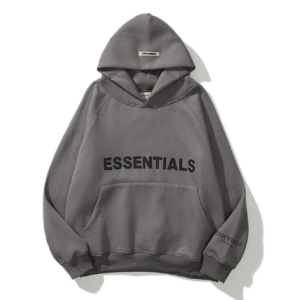Starting a healthcare facility in Dubai requires more than just a vision; it demands proper licensing to operate legally and ensure patient safety. Navigating the complex regulatory landscape can be overwhelming without professional guidance. Partnering with Mokza Healthcare ensures your facility meets all standards efficiently while streamlining the licensing process for a smoother, stress-free experience. Licensing is not just a legal formality—it is a critical foundation for building patient trust and operational excellence.
Simplifying Healthcare Facility Licensing Procedures
Healthcare Facility Licensing in Dubai involves a series of regulatory steps designed to maintain high-quality medical standards across all clinics, hospitals, and healthcare centers. Every facility must demonstrate compliance with safety regulations, staff qualifications, facility infrastructure, and operational protocols. Engaging expert services like Healthcare Facility Licensing allows facilities to understand these requirements in detail, avoid common mistakes, and accelerate approval timelines.
Preparing Comprehensive Documentation
The first step is compiling all necessary documents required by Dubai’s health authorities. This includes detailed facility layouts, staff qualifications, equipment inventories, and operational procedures. Proper documentation ensures that authorities can evaluate your facility quickly and without confusion.
Ensuring Accuracy and Completeness
Incomplete or incorrect documentation is one of the leading causes of delays in licensing approvals. Expert review of all submissions guarantees that every file meets the official requirements, reducing the likelihood of rejections or resubmissions.
Organized Submissions for Faster Processing
Documents should be logically categorized and presented in a professional format. Organized submissions not only impress regulators but also make it easier to manage follow-ups and respond to any queries promptly.

Ensuring Facility Layout Compliance
Every healthcare facility must comply with strict standards for room allocation, hygiene, emergency access, and patient flow. Proper layout planning ensures operational efficiency, patient comfort, and safety.
Integrating MEP and Interior Design Considerations
Mechanical, electrical, and plumbing systems, along with interior design features, must align with regulatory requirements. Proper integration of these systems guarantees smooth operations and reduces future maintenance issues.
Planning for Inspections
A well-prepared facility layout minimizes the risk of failed inspections. Mock inspections and compliance checks before submission can help identify and correct potential problems, saving both time and money.
Verifying Staff Credentials and Training
Staff qualifications are critical for obtaining a license. All medical and administrative staff must hold valid licenses and complete required training programs to ensure safe and efficient operations.
Credential Audits
Thorough audits of staff credentials prevent issues during regulatory inspections. This process includes verifying academic qualifications, professional licenses, and any mandatory certifications.
Continuous Professional Development
Ongoing training programs for staff maintain compliance with evolving healthcare standards and enhance overall patient care quality. Facilities with regularly trained staff demonstrate professionalism and reliability.
Regulatory Submissions and Follow-Up
Once all documents and facility standards are in place, applications can be submitted to the relevant authorities. The process requires careful tracking and timely responses to regulator requests.
Monitoring Progress
Active monitoring of application progress ensures that no deadlines are missed, and potential issues are addressed immediately. This reduces delays and keeps the process on track.
Addressing Feedback Quickly
Regulatory authorities may request clarifications, additional documents, or minor adjustments. Prompt and accurate responses to feedback help maintain good rapport and expedite approvals.
Preparing for Final Inspection and Approval
After successful submission, authorities schedule on-site inspections to evaluate the facility’s compliance with operational, safety, and hygiene standards.

Mock Inspections
Conducting internal mock inspections allows facilities to identify potential shortcomings and address them before the official inspection. This step greatly increases the chances of first-time approval.
Receiving the License
After passing the inspection successfully, the facility is granted an official license to operate in Dubai. This milestone allows the healthcare center to serve patients legally and demonstrates its commitment to quality and safety standards.
Conclusion
Navigating healthcare facility licensing in Dubai can be complex, but following structured steps and leveraging professional expertise makes the process manageable and efficient. By partnering with Mokza Healthcare, healthcare providers can ensure compliance, reduce delays, and focus on delivering exceptional patient care. Proper licensing lays the foundation for a reputable, trusted, and well-managed facility that meets the high standards of Dubai’s healthcare industry.
FAQs
1. What is Healthcare Facility Licensing?
It is the official approval required for healthcare facilities to operate legally in Dubai, ensuring adherence to safety and quality standards.
2. How long does the licensing process take?
The timeline varies depending on the facility type and preparation, but thorough documentation and expert support can significantly reduce processing time.
3. Can Mokza Healthcare assist in licensing?
Yes, Mokza Healthcare provides comprehensive support, including documentation, compliance checks, regulatory submissions, and follow-up assistance.
4. Are staff credentials necessary for licensing?
Absolutely. Authorities require verified licenses, training certificates, and relevant qualifications for all medical and administrative personnel.
5. What happens after obtaining the license?
Once licensed, the facility can legally operate in Dubai. Ongoing compliance, inspections, and staff training are essential to maintain the license.



